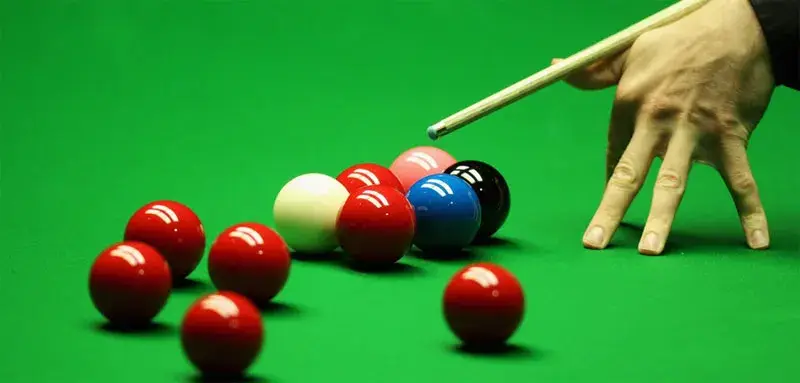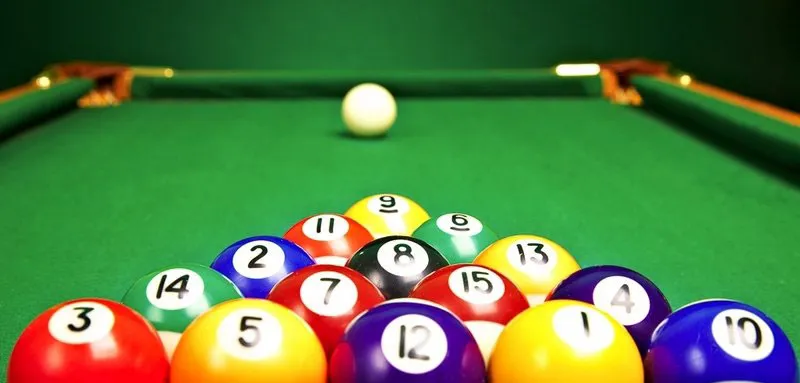English billiards has become a symbol of elegance and strategic thinking, finding its place in British clubs and noble houses. The first mentions of it date back to the 17th century, when billiards was a game for the elite – only the wealthiest could afford billiard tables with high-quality cloth and a perfectly flat surface. This game came through the prism of old French and Spanish versions, which included elements of croquet and bowling, but it was the English who added intellectual depth and style to it.
With the development of the British colonial system, English billiards began to conquer the world. In the 19th century, it became an integral part of the country’s culture and spread to the colonies in India, Australia and Canada. This was largely due to its appearance in British clubs, where the rules and style quickly standardized. The history of billiards is filled with interesting characters, for example, John Roberts the Elder. He is a real master who not only won tournaments, but also popularized the game, turning fights into social events.

English Billiards Rules: From Simple Steps to Mastery
The format has a unique atmosphere and a set of rules that distinguish it from other varieties. The main emphasis here is on accuracy and the ability to predict several moves ahead. Everything starts with choosing a table – for English billiards, as a rule, larger than for pool, and covered with a denser green cloth. They are equipped with six bows, which require special accuracy when pocketing billiard balls.
The basic rules include several types of shots: carom (touching two balls), cannon (touching two balls after hitting) and sticking a ball into a pocket. There are three balls in the game: red, white and yellow. Each move of the player is accompanied by a decision: what is the best way to hit to leave the opponent in an uncomfortable position? This is not just a physical action, but also a logical task. The athlete must calculate the steps and leave himself an advantageous position.
Cue for English billiards and playing technique
 A true master of English billiards knows that success begins with choosing the right cue. It should be made of strong wood, such as ash or maple, with the optimal length and weight. For beginners, the weight of the cue may seem insignificant, but, as practice shows, it significantly affects the accuracy of the strike. The longer the cue, the more control over the movement, and a well-balanced cue is like an extension of the player’s hand.
A true master of English billiards knows that success begins with choosing the right cue. It should be made of strong wood, such as ash or maple, with the optimal length and weight. For beginners, the weight of the cue may seem insignificant, but, as practice shows, it significantly affects the accuracy of the strike. The longer the cue, the more control over the movement, and a well-balanced cue is like an extension of the player’s hand.
Mastering the technique requires many years of practice. The cue should be held confidently, but not too tensely, so that the flexibility of movement is maintained. The beginning of any strike is calm breathing and the correct stance. It is important to keep your shoulders level, directing your gaze precisely at the target. The technique involves precision and planning – participants often work with multi-move combinations, and each successful strike is another step towards dominance at the table.
Tips for improving your playing technique:
- Correct foot placement: the basis of stability. Your supporting foot should be level with the cue, which helps you control your center of gravity and maintain balance when hitting.
- Controlling the speed of your hit: A soft hit will help you position the balls neatly for your next move, while a strong hit can prevent your opponent from developing a strategy.
- Visual concentration: Before each hit, focus not only on the ball itself, but also on the trajectory of the movement. This will help you predict the further behavior of the balls on the table.
- Mental visualization: Imagine how the ball will move after the hit. Visualization helps you better understand how to choose the right angle and force of the hit.
- Checking the grip of the cue on the cloth: Make sure the tip is in good condition. Poor grip can lead to slipping, which affects the accuracy of the hit.
- Practising different angles: The more angles you can control, the easier it will be to combine hits and choose optimal trajectories.
- Working on the speed of movement around the table: Do not linger in one position. This will allow you to navigate faster and make decisions, which is extremely important for a dynamic game. Using a rest: In situations where a standard stance is not possible, a rest will help you make an accurate shot while maintaining control over the ball’s position.
- Focus on finishing the shot: After the shot, it is important to continue moving the cue without stopping abruptly. This ensures a smooth direction of the ball and improves the quality of the shot.
- Mental preparation: Prepare yourself mentally for each game. A calm attitude helps you make more balanced and thoughtful decisions at the table.
English billiards vs. other types: analysis and key differences
What is the difference between English billiards and other types, such as snooker or pool? The main difference lies in technique and strategy. Unlike pool, where the game is aimed at pocketing as many balls as possible, the English version requires making combination shots (carom). The indicator of skill here is not only the number of hits, but also the ability to control the position of the remaining balls on the table.
The table sizes, the number and type of balls, as well as the philosophy of the game itself also differ. In English billiards, it is important to control the situation, create strategic combinations, and not just the power and accuracy of the shots, as in pool. Here, the intellectual component is no less important than physical skills.
Famous English Billiards Players: From Legends to Modern Masters
There are names in history that have become synonymous with perfection. William Cook, for example, became the first recognized champion of English billiards in 1870, and his technique is still studied in billiard schools. He was a master of complex caroms, and it is thanks to him that many modern athletes consider this element an obligatory part of their arsenal.
Modern masters, such as Ronnie O’Sullivan, have brought a touch of sporty daring and unpredictability to English billiards. Ronnie is known for the speed of the game and the ability to make decisions on the fly, which makes his performances especially spectacular.
Try your hand at English billiards
 Understanding the nuances of English billiards allows you to immerse yourself in the atmosphere of Victorian clubs, to feel part of something elegant and thoughtful. Want to experience what it means to be a cue master? Check out the online platform or sign up at your nearest billiard club, grab your cue, and go ahead – into a world where every move counts and every game is a small battle of wits and dexterity.
Understanding the nuances of English billiards allows you to immerse yourself in the atmosphere of Victorian clubs, to feel part of something elegant and thoughtful. Want to experience what it means to be a cue master? Check out the online platform or sign up at your nearest billiard club, grab your cue, and go ahead – into a world where every move counts and every game is a small battle of wits and dexterity.

 en
en  ru
ru  de
de  ar
ar  es
es  nl
nl  hi
hi  fr
fr  it
it  pt
pt  el
el 








